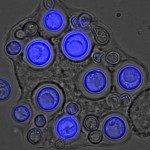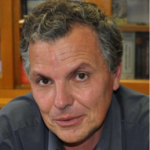Link to Pubmed [PMID] – 21071502
Haematologica 2011 Feb;96(2):337-41
Patients with acute leukemia who initially survive invasive fungal disease must receive chemotherapy or go on to transplant. Many centers change subsequent chemotherapy to decrease the risk of fungal reactivation. This case-control study compared acute leukemia patients (n=28) who developed a proven or probable fungal disease and survived four weeks later, to patients who did not (n=78), and assessed the impact of fungal disease on the chemotherapy regimens, and overall and event-free survival. Chemotherapy changes (i.e. delays, dose-reduction) were more frequent in the fungal (68%) than in the control group (24%) (P<0.001). Although there was no difference in overall and event-free survival between groups, they were both lower for proven fungal disease cases when compared to controls (HR 2.4, 95% CI 1.1-1.5, and HR 2.9, 95% CI 1.4-5.6, respectively). Patients with invasive fungal disease, even though they initially survive, undergo significant changes to their chemotherapy therapy. This impacts on the survival of patients with proven fungal disease.

